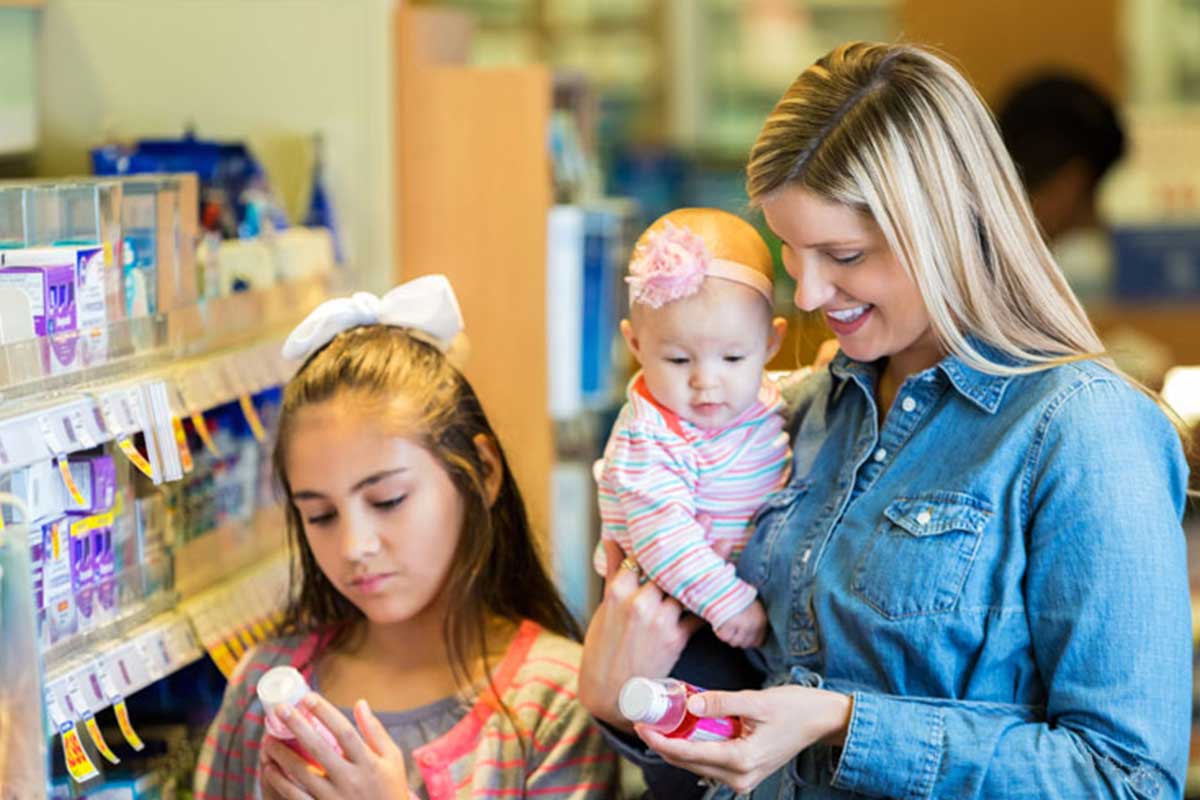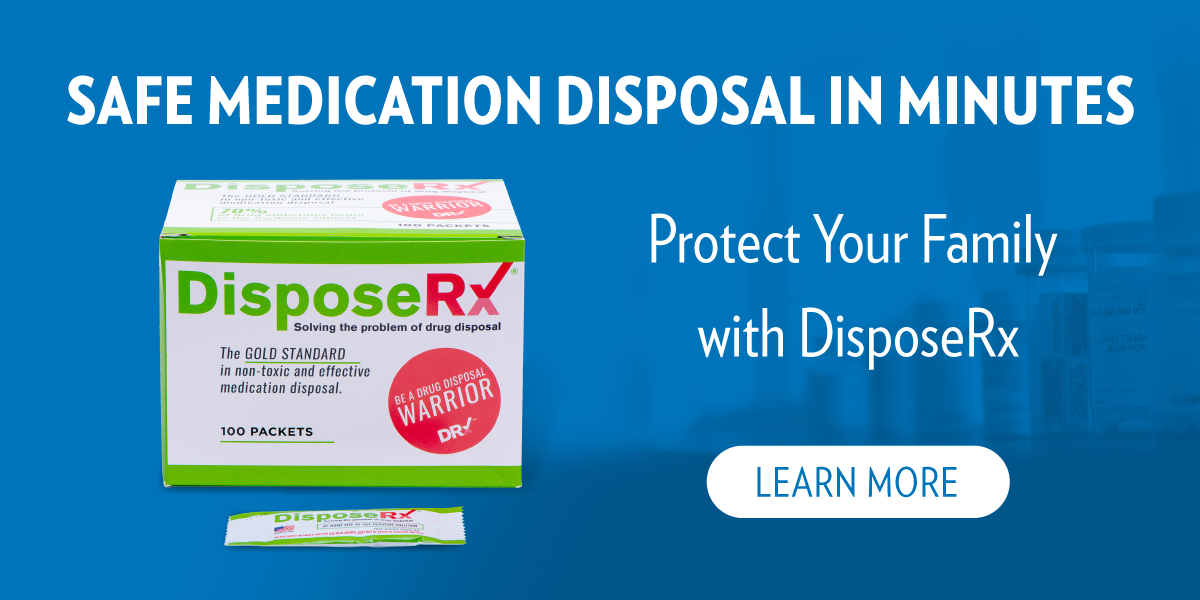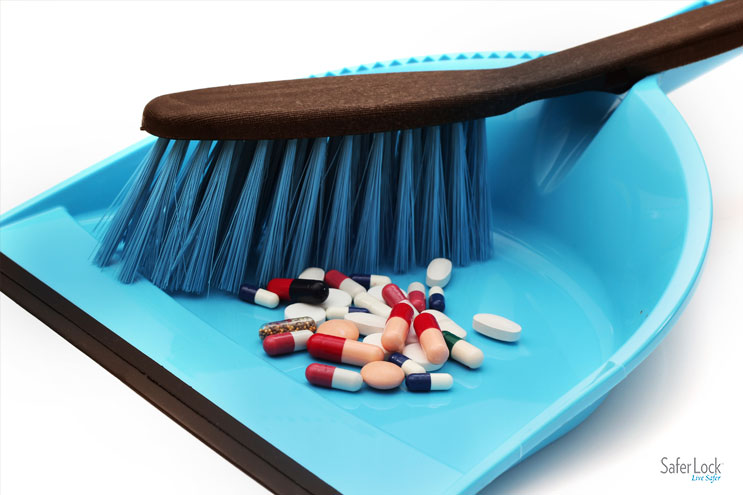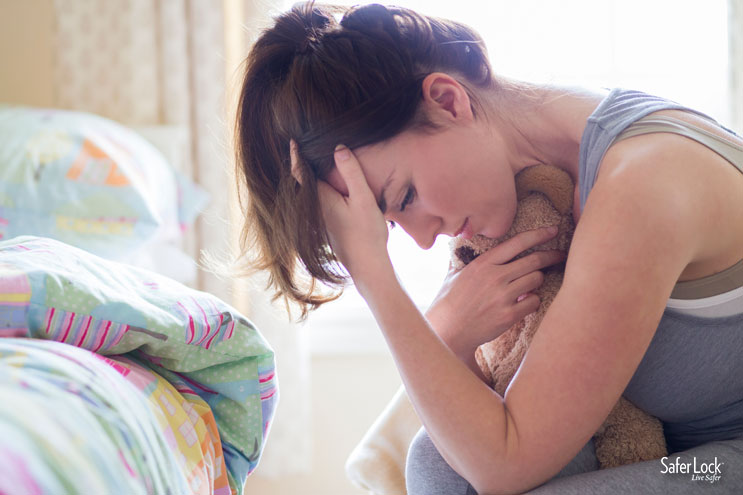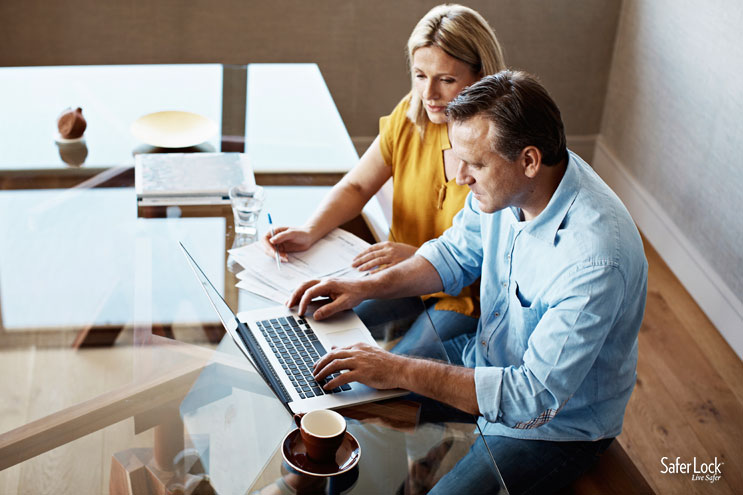When you are a parent, you will do everything in your power to keep your kids safe. From babyproofing your home when your kids are little, to curfews and rules as they grow, parents try their hardest to protect their kids from the risks that could cause them harm. And in case something does happen, parents are always prepared with a well-stocked medicine cabinet filled to the brim with bandages, cough syrup, cold medicine, and even pain pills. But this well stocked medicine cabinet can actually pose a huge threat to the safety of your kids, no matter what their age.
From accidental poisoning of toddlers to teenage prescription drug use, the medicine cabinet is one of the riskiest threats in your home. You can help keep your kids safe, however, by properly storing and disposing of prescription and OTC medicines. Here’s how.
1. Secure Prescriptions with a Lock
Teens are looking to the medicine cabinet for drugs these days, and they are finding plenty to choose from; the pain pills you were prescribed after a surgery, the ADHD medicine for your youngest child, and the anti-anxiety meds your spouse occasionally takes before flying on a plane. 60% of teens who misuse prescription drugs say the pills are readily available and easy to get from home. They also think these drugs are “safer” than the drugs they might find on the street, because they were prescribed by a doctor.
Your prescription medications need an extra layer of security to keep curious teens from taking “just one” pill from a bottle found in the medicine cabinet. When a prescription bottle is fitted with a combination locking cap, only the person who knows the code can open the bottle without obvious tampering that raises a red flag. Locking pill bottles can help deter the misuse that can quickly turn to teenage drug addiction.
2. Secure OTC Medicines Together
Prescriptions are not the only medicines that teens are looking to for a “safe” way to party, either. The misuse of OTC medicines such as cough syrup and cold medicine are also on the rise. And teens who think cough syrups containing dextromethorphan (DXM) are a safe and cheap way to get high are putting themselves at serious risk. Around 6,000 teens are being rushed to the emergency room for recreational DXM use each year, and fatal DXM overdoses are tragically taking the lives of teenagers.
Medicine lock boxes are an easy way to keep all of the family’s medications in one spot, while still making it harder for the teens in your home to find an “easy” high in the form of cough syrup and cold medicines.
3. Keep Meds Out of Sight and Out of Reach
For families with young children, keeping medications stored up out of sight and out of reach can help prevent accidental poisonings. Up and Away is a part of the PROTECT initiative by the Centers for Disease Control (CDC) to remind families about the importance of medicine safety. According to Up and Away campaign, nearly 60,000 children are brought to the emergency room each year after getting into medicines that were left within their reach.
Never leave medicines stored on a countertop, bedside table, or easily accessible purse or bag where a young child could get hold of them. Always store medicines out of sight and out of reach of any children.
4. Swap Childproof Caps For Locking Caps
A childproof cap can easily be opened by even the youngest tots. Kids as young as two- to four- years old have demonstrated that they can remove the child resistant caps that come on OTC and prescription medications (as well as dangerous household cleaning supplies) in a matter of minutes. In the same time it takes for you to realize your little one is out of your sight and up to something, they could be removing a lid from a dangerous medication and exploring the contents by putting those pills in their mouth.
To help protect young children from the dangers of accidental medicine poisoning, replace the child resistant caps that come with your meds with a more secure locking cap that can more effectively keep them from accessing medications.
5. Don’t Mix Meds
Keep medicines stored in separate containers. Do not mix different medications together in the same bottle. You may think you know which pill is which, but accidentally mixing two different prescriptions could have fatal results. Combining prescriptions or even over the counter meds without a doctor’s approval is medicine misuse, and could lead to accidental poisoning and even death.
6. Store Medicines Together
Have one designated area where medications are kept. A dry and cool place is best for most medications. The bathroom and kitchen, where most people commonly keep meds, are actually not the ideal location for medication storage. Bathrooms in particular generate a good amount of heat and moisture from baths and showers, and the kitchen can get hot when ovens and stoves are used.
If you do have medications that need to be refrigerated, keep them in a lockbox or locked bottle in an area of the fridge that is separate from food.
If you need to keep a prescription with you, in a purse, bag or briefcase, be sure to store it with a locking cap. Even if you don’t have young children in your own home, if you were a guest in someone else’s house you wouldn’t want to put their children at risk. In too many instances of accidental medicine poisoning, small children have accessed a prescription medication found in the purse or bag of a visiting grandparent.
7. Set An Appointment To Organize Medications Annually
Grab your calendar and mark an appointment to clean out your medicine cabinet. January is a good time to start the year fresh, and get the ball rolling on all of the home organization projects you put on your list of resolutions this year. Give yourself a half hour to carefully pull out all of your medications, looking for expired, unwanted, or unneeded meds that need to be disposed of. Even if you have all of your meds securely locked, you still want to look for expired medications to dispose of. Keeping a log of the prescriptions in your home, what they are used for, and when they expire can help you stay on top of medicine organization moving forward.
Putting this appointment on your calendar is a sure-fire way to make it happen, so you don’t push it off until the next week or the week after. Set a follow up appointment for yourself six months later to do the same. At least twice a year, clean out your medicine supply.
8. Look For Prescription Take-Back Programs
Each year, the U.S. Drug Enforcement Administration (DEA) successfully hosts National Prescription Drug Take-Back programs in communities across the nation. Your town or community may have their own annual or semi-annual events, encouraging the responsible disposal of prescription meds that are no longer needed or have reached their expiration date.
Keeping unneeded prescription pills around, such as powerful narcotic painkillers, just in case you might need them later is a risky move. The more prescriptions you have in your home, the more likely your teen may figure out how to get their hands on them, or the more chances you leave open for a young child for an accidental poisoning.
9. Drop Off Old Medicines
You don’t have to wait for an organized take-back program to dispose of medicines that are old, expired, unwanted, or unneeded. Many communities have prescription drug drop-off kiosks located in pharmacies, health care clinics, treatment facilities, and police stations where you can get rid of medications whenever you need to.
To find a drop off location near you, contact local law enforcement, or go to Dispose My Meds and enter your zip code to find a pharmacy that will take your unwanted or old medications.
10. Toss Meds Out Correctly
If you don’t have access to a drop off location or take-back program, it is ok to throw away your medications. But tossing your old medications, bottle and all, into the trash isn’t recommended. the FDA recommends that you first mix any pills or capsules into an inedible substance, such as kitty litter. Then, pour the entire mixture into a container that can be sealed, like a plastic bag, before tossing into the trash.
Remember to remove any identifying information from the prescription bottles before you put them into the trash or recycling bin. The last thing you want is to advertise your name and the kinds of prescriptions you have available in your home. Drug addicts can go to terrifying lengths to get their next fix, so protect your family by keeping the types of prescriptions coming in and out of your home private.
11. But Don’t Flush Medicine
Flushing expired or unneeded medications used to be recommended, but the environmental impact of all those drugs going down the toilet is staggering. Consider the following: more than 4 billion prescriptions are filled each year in the U.S. Where are they ending up? Pharmaceutical drugs are making their way into the environment, and have been detected in lakes, rivers, and even drinking water.
Responsible storage and disposal of medicines should be a priority in everyone’s home. The dangers of medications are real: prescription overdoses, accidental poisonings, and prescription addiction are real threats to the health and safety of you and your family. Medication safety is important, and these tips could help save the life of someone you love.
